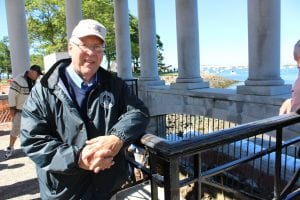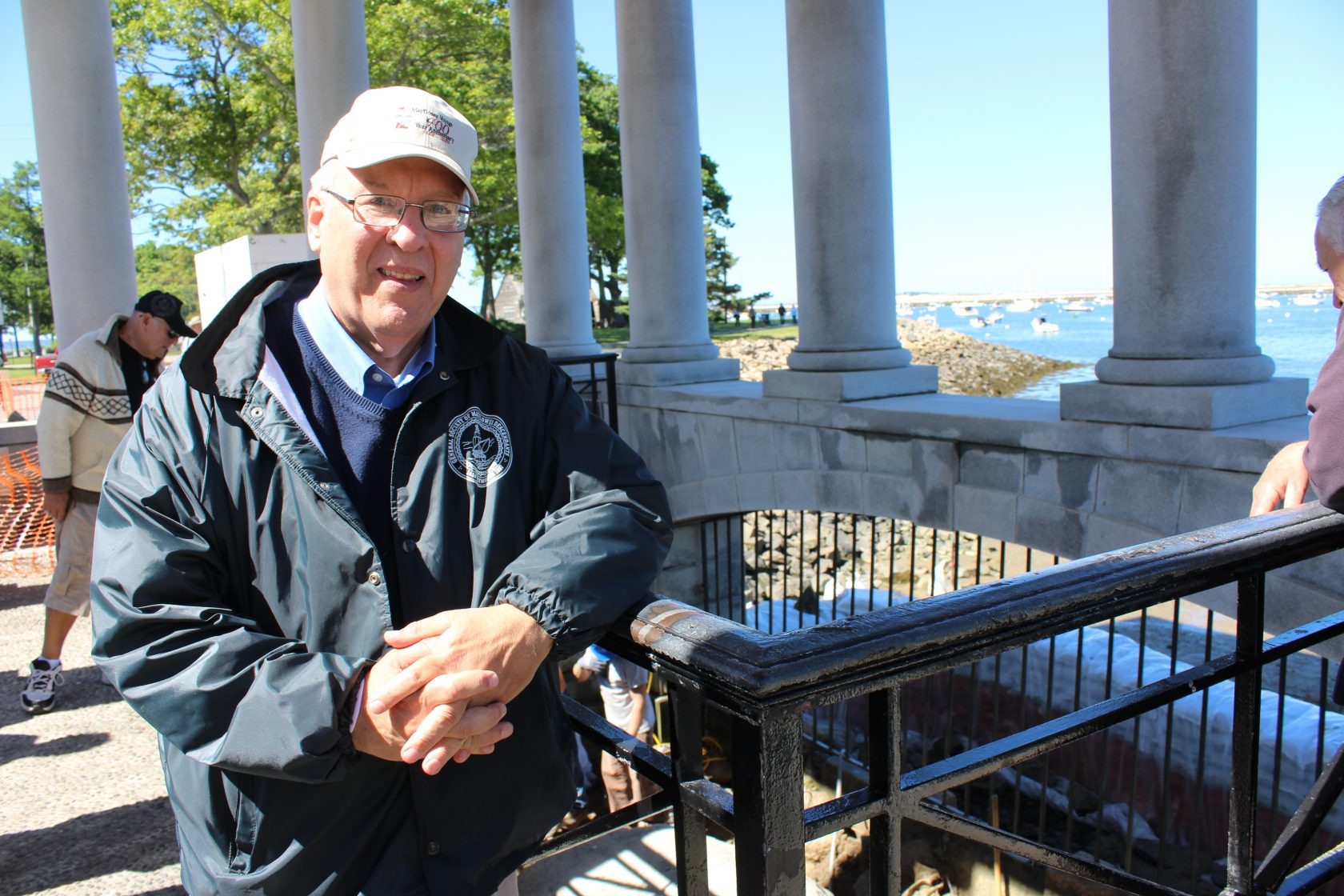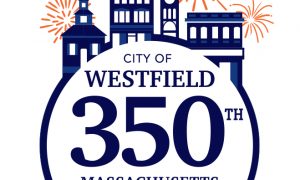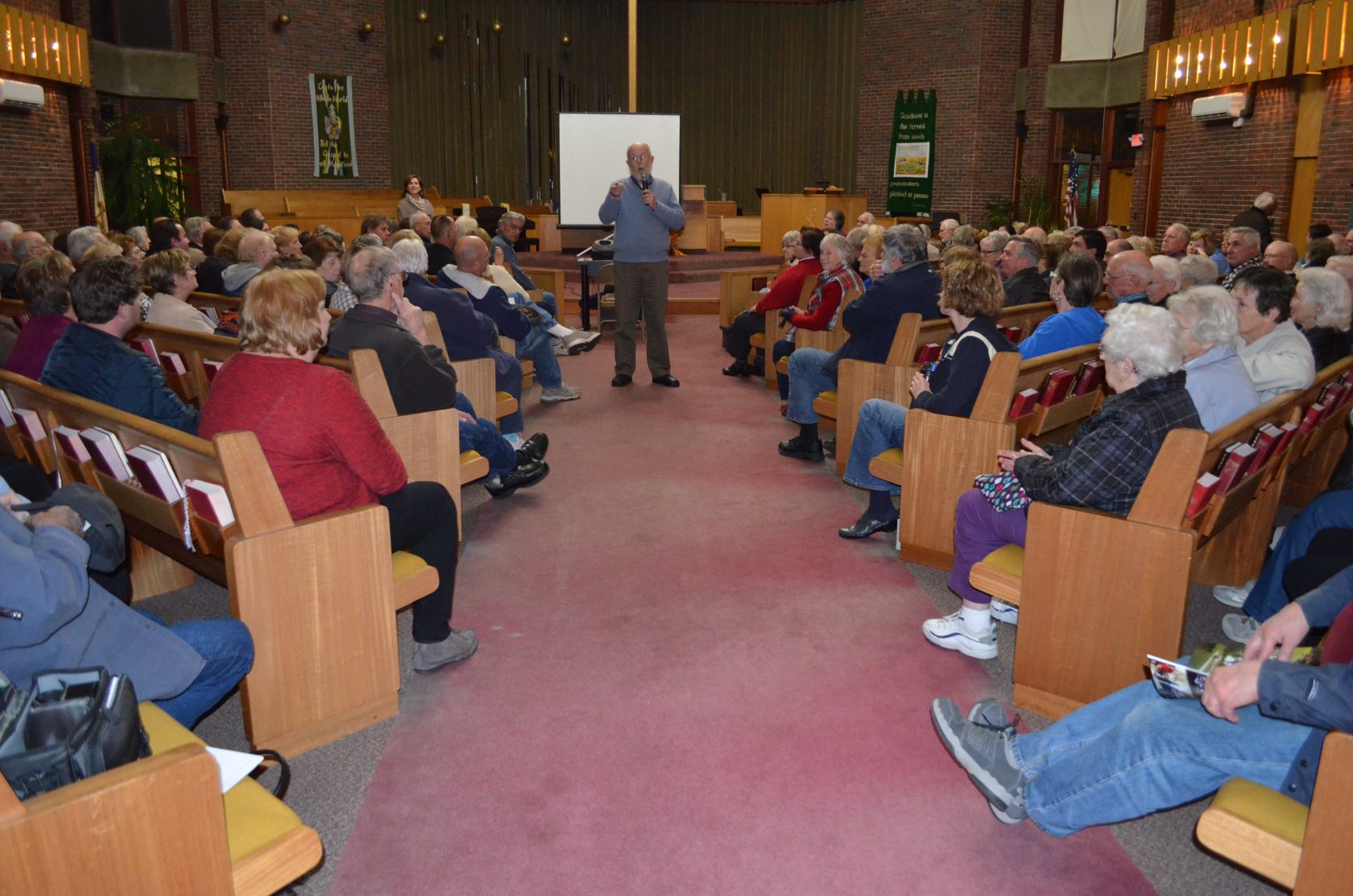
Walter Powell, seen in front of Plymouth Rock, will deliver his lecture on the Rev. Edward Taylor on Wednesday, March 27, at 6:30 in the First Congregational Church. (Photo submitted)
WESTFIELD- The Westfield 350 Historical Lecture Series will feature a talk by Walter Powell on Wednesday at 6:30 p.m. in the First Congregational Church. Powell will discuss the life of Reverend Edward Taylor, an early Westfield resident who rose to prominence in the community as a minister and poet.
Powell’s lecture will focus on Taylor’s life when he came to Westfield in 1671, just two years after the community was incorporated. Despite Taylor being a figure that may not be a household name, Powell said that he would equate him to literary figures Robert Frost and Emily Dickinson.
“If people know anything at all about Taylor, they know him vaguely as a poet who happened to be a minister,” said Powell.
Taylor spent his formative years in England before immigrating to what was at the time the American Colonies of England at the age of 20. He, like many people at the time, fled England in pursuit of religious freedom. He spent the beginning of his time in America in Boston, before public opinion of him shifted to the point where he had to leave. Taylor had been involved in a scandal in which he was providing ‘spiritual comfort’ to a married woman at Harvard.
Taylor trekked to western Massachusetts through the winter when he came upon Westfield. At the time, Westfield was a settlement basically in the middle of nowhere. Because most people were inclined to remain in the population centers, the settlement was without a pastor for its congregation. Taylor filled that role after he arrived and remained there until he experienced health issues due to old age.
Powell’s lecture will focus on the details of Taylor’s life, and what effect the Westfield community had on his work, and vice versa.
“It’s hard to approach him today because his poetry seems so distant to people,” said Powell, “It’s like the King James Bible or Shakespeare.”
Powell described Taylor as one of the most important people in the community due to his English education and having the largest library in Westfield at the time.
There are also prevalent myths surrounding Taylor and his poetry. It was believed by many that he forbade his work to be published while he was still alive. He had a habit of publishing poetry on special occasions such as holidays, according to Powell. A large body of his work, however, was later discovered and published in 1939 by a professor in Princeton, New Jersey. It was this publication that put Taylor on the map of colonial literary minds.
Walter Powell is a native of Southwick who works as a public history consultant in Plymouth, Massachusetts. For 17 years, he was also the Director of Planning and Historic Preservation for the Borough of Gettysburg, Pennsylvania. He got his education from Kent State University, from which he received his Ph.D. His dissertation was actually written about Reverend Taylor. It was titled, “Edward Taylor’s Westfield: An Edition of the Westfield ‘Town Records.’”





